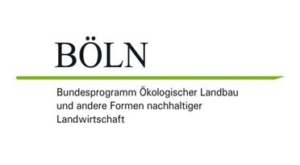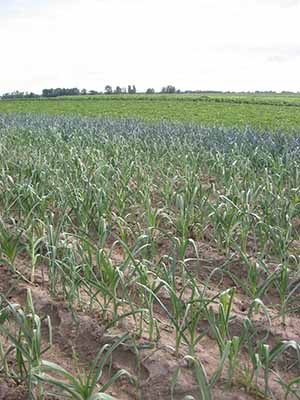
Acronym : BOEL evaluation
Code : 123-02.05-20.0028/10-H
Contract Period : 01/01/2011 - 31/10/2012
Main Funder : Bundesanstalt fuer Landwirtschaft und Ernaehrung, Bonn
ORC Staff Contact : Susanne Padel, Anja Vieweger

The Programme for Organic Agriculture (BÖL) was set up in 2001 by the German Ministry of Food, Agriculture and Consumer Protection (then BMVEL); the relevance, effectiveness and resource efficiency of its research component was evaluated in this project.
The Federal Scheme on Organic Agriculture (BÖL) was set up in 2001 by the German Ministry of Food, Agriculture and Consumer Protection (then BMVEL) to boost organic farming in Germany and to increase the quality and the market share of organic products. Run by the Federal Agency for Agriculture and Food (BLE), BÖL was initially limited to 2 years, but was repeatedly extended, with current funding fixed until 2015 and now covering also wider aspects of sustainability. This study aimed to assess the relevance, effectiveness and resource efficiency of the research component of the Scheme.
To evaluate the research at programme level, an effects model of the BÖL Scheme was developed to analyse how the various measures implemented, including the research programme, could contribute to the Scheme’s overall aims and objectives. Data from the BLE research project database were analysed to assess the distribution of resources over time by topic and provider. This was supported by an online survey of 104 project leaders and interviews with 30 sector stakeholders and 12 BLE employees. For the evaluation at project level, a random selection of 83 projects was reviewed by external experts, including both scientists and stakeholders. Also the project selection process was analysed. The overall conclusions were then reviewed by external experts.
From 2000 to 2010, the number of organic farms in Germany increased by 49%, the organically managed land area by 81% and the market for organic products by 188%. This development was supported by the various activities of the BÖL Scheme.
The research component of the Scheme included projects on production, processing, and marketing of organic products as well as specific knowledge transfer activities. Between 2001 and 2011, a total of €74.8 million was spent on 659 projects, carried out by 140 organisations. Nearly 80% of the funds were used for research and development projects, the remainder for knowledge transfer and status quo surveys. Comprehensive project reports were published on Organic Eprints (see links below), an international open-access literature database, and a large number of publications in refereed journals, periodicals and conferences were produced. The BÖL Scheme also stimulated knowledge transfer in the organic sector with more than 1000 events held.
The reviewers found more than 80% of projects to be highly relevant and useful for practice. Stakeholder involvement together with the input from the research community resulted in a strong bottom-up influence on research topic selection. However, the concentration of funds on plant and soil research (46%) remained relatively high, despite feedback in a previous evaluation. The team found that resources were spent efficiently and the majority of external reviewers found projects to have an adequate cost/performance ratio. The survey among project leaders showed a high level of satisfaction with the BÖL office and the accessibility of BLE staff.
The evaluation found that at project level the programme was implemented effectively, but the absence of an explicit programming strategy giving the BÖL research programme coherence and consistency was noted as a weakness. The main challenges for the future are to develop a clear and explicit strategy at both programme and project level, and to build specific personnel and structural research capacities to support this. Scientific quality could be improved by enhancements to the project selection process, by including funding options to allow for larger samples and longer project durations, and by increased emphasis on peer-reviewed academic publications to increase the international impact of the research. The applied nature of the programme and its relevance to end users (practitioners) was valued highly. This could be enhanced by developing a knowledge transfer strategy that places the programme firmly in the context of supporting organic/sustainable agricultural innovation in its broadest sense, with BLE as the lead research management organisation for such applied innovation programmes.
ORC was leading on work package 1, the evaluation on programme level; and was strongly involved in all other work packages: 2 the evaluation on project level, 3 the evaluation on process and management level and 4 synthesis and overall assessment.
This project has been completed in October 2012.
Project Leader: InterVal GmbH, Habersaathstraße 58, 10115 Berlin, Germany
Partners: Eberswalde University for Sustainable Development, Friedrich-Ebert-Straße 28, 16225 Eberswalde, Germany
Murphy-Bokern Konzepte, Lindenweg 12, 49393 Lohne, Germany
The project’s final report can be downloaded here (in German)
A four page summary with selected highlights from 650 German organic research projects was published as a supplement to ORC Bulletin 111 here
The following links lead to English summaries of the research results in eight areas; they were compiled as part of this evaluation. Where available, links to the German final-reports of individual projects are provided.
German Ministry of Food, Agriculture and Consumer Protection (BMELV)